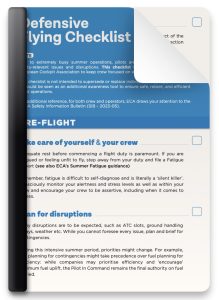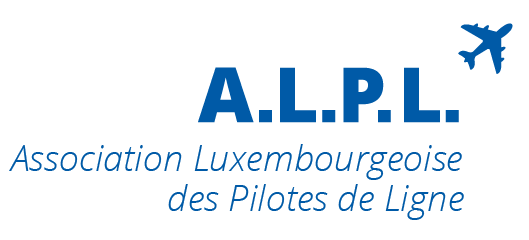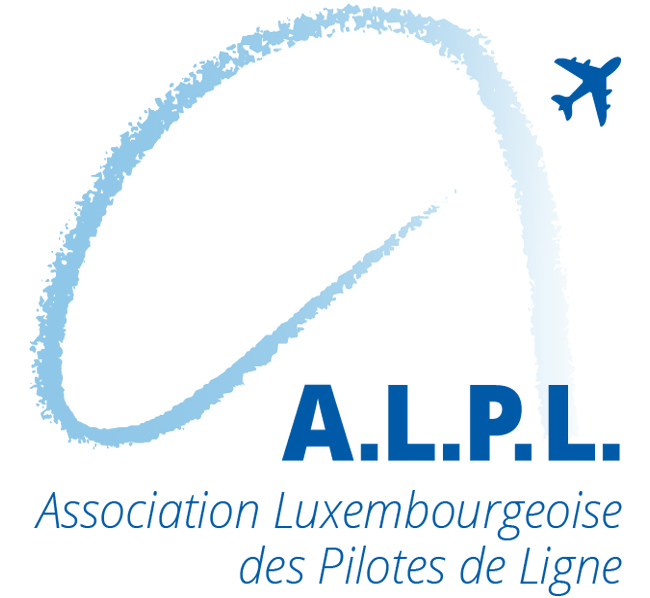As 2025 draws to a close, the entire ALPL Cargolux Divisional Board wishes you and your loved ones a joyful Holiday Season and a happy New Year!
We would like to take this opportunity to reflect on the past year. In February, the new PBS options were implemented, and it has been encouraging to see a steady improvement in individual success rates. We recognize that the introduction of the new PBS in 2022 had a significant impact on quality of life and off-time requests, creating a clear need for refinement. The system’s complexity, technical hurdles, and reliance on third-party providers have been challenging for everyone involved.
While not every off-time request can be fulfilled, the combination of tutorial videos, inflight briefings, and individual coaching has led to better results and a deeper understanding of PBS across the community. The system remains imperfect, but we are committed to making continued improvements through the PBS Working Group. Your feedback plays a vital role in identifying technical issues or patterns that hinder the pilot community, and we sincerely appreciate your contributions.
In May, elections for the Divisional Board took place. Following changes to the ALPL statutes in 2024, the Board has expanded from seven to eleven members. This expansion allows us to distribute the workload more evenly and improve succession planning. The term has also been extended to four years (2025–2029), aligning with the Cargolux Delegation’s term. A larger team naturally brings more perspectives and lively debate – but this diversity of experience and fresh ideas ultimately enhances pilot representation.
However, our work is only possible thanks to your ongoing support and engagement. You, the members, are the backbone of our efforts and it is encouraging to see stable membership levels, as we welcome new hires taking the place of those who have retired or left for personal reasons.
Finally, as in previous years, fatigue mitigation continues to be a priority at Cargolux. We will not stop highlighting this critical topic and progress requires collaboration between the company and the pilot group. Your reports are essential for identifying hotspots in our network and enable our representatives in the FSAG to tackle them effectively. Please support their efforts to ensure meaningful outcomes – they depend on a strong reporting culture.
Thank you for your unwavering support during another busy year. We hope you enjoy some well-deserved time with your loved ones during the festive season.
Merry Christmas and Happy Holidays!
Members Update – December 2025
As part of our ongoing work within the Fatigue Safety Action Group (FSAG) and our commitment to promoting a strong safety culture, we would like to share a useful IFALPA document that provides clear guidance on how to complete effective fatigue reports:
IFALPA Fatigue Reporting Guidance
Fatigue reporting remains one of the most important tools for identifying operational risks and supporting long-term fatigue trend analysis. High-quality reports allow the FSAG and the company to better understand the factors influencing alertness and to implement appropriate mitigations where needed.
This document provides:
- Practical, neutral terminology for describing fatigue-related events,
- Clear examples of the information that helps safety teams analyse reports,
- Guidance on describing causal factors, sleep evaluation, and mitigations,
- A step-by-step overview of what constitutes an effective fatigue report.
We encourage all pilots to review and use this guidance as a helpful reference when submitting future fatigue reports. Consistent, factual, and well-structured reporting strengthens our safety system and benefits all of us.
Thank you for your continued professionalism and support! If you have any questions or would like further clarification, please feel free to reach out.
Members Update – November 2025 (CAO DGR)
We would like to share some information regarding recent events on the above-mentioned topic and our role in it:
Two of our pilot representatives (Oliver Eichorst and Nick Collett) recently joined the IFALPA Dangerous Goods (DG) Committee, attending its yearly committee meeting at BALPA HQ at Heathrow.
The IFALPA DG Committee promotes the safe transport of DG by air and represents IFALPA at major international forums such as the October’s ICAO Assembly in Montreal.
The meeting in London ran over three days, spanning a wide variety of topics, the most relevant to us at Cargolux being the issue of CAO freight:
As we all know, passage aboard Cargolux aircraft carrying CAO DGR’s for leisure travel has been prohibited for some years due to restrictions imposed by ICAO Annex 18. Attempts by ALPL and Cargolux management to resolve this by means of DAC exemption have thus far been without success.
According to ICAO Annex 18 Definition – a ‘passenger aircraft’ is an aircraft that carries any person other than:
– A crew member,
– An operator’s employee in an official capacity,
– An authorized representative of an appropriate national authority,
– A person accompanying a consignment or other cargo
This constitutes the list of people who may be carried aboard a cargo aircraft, according to ICAO Annex 18.
Few states honor this to the letter – most have added other categories of persons who can travel on cargo aircraft carrying CAO. For example – horse grooms returning without horses are not foreseen by the ICAO definition of a cargo aircraft. This provision is provided by a DAC exemption.
IFALPA has, through the ICAO Dangerous Goods Panel, been working for several years to resolve this, to permit additional people to travel on CAO-laden aircraft. Various workarounds have been looked at, but proposals thus far have had mixed reception at ICAO level.
One early proposal was to change the definition of a cargo aircraft to broaden the scope of who could travel on board. This faced opposition as it was seen as attempting ‘regulation through definition’.
The most recent proposal, tabled at the (ICAO Convention) in Montreal in October 2025, was to delete the definitions of passenger and cargo aircraft from Annex 18, and to add new wording that would permit additional persons on board a CAO flight when authorized by the operator and the State of the Operator.
Unfortunately, this latest proposal was also rejected, due to opposition from several ICAO DG Panel members who fear unintended consequences of deletion of the definitions, and that a thorough impact assessment would need to be done.
Despite this setback, IFALPA, through the ICAO DG panel, will continue work to resolve the issue. Confidence was expressed at the meeting in London that this would be eventually successful.
The timing, however, is uncertain, especially due to the slow pace of proceedings at ICAO level. It is unlikely that Annex 18 changes which would lead to a relief in our situation would come into effect before 1st January 2029.
Despite these setbacks, Oli and Nick reported that there was optimism that the ICAO text would eventually be changed for the better. They made valuable connections and were pleased to witness first hand that there is a dedicated, knowledgeable team working towards rectifying not only these issues, but a wide range of DG related safety topics.
Also worth mentioning is the fact that Cargolux is by far not the only operator with a very restrictive aviation authority limiting our well-deserved staff travel benefits. The prominent examples where the authorities have currently allowed additional people on board are the exception.
For us, these dragged developments mean that we are launching a prepared initiative to try to mitigate the restrictions internally by other means.
We will keep you updated as soon as possible and hope to have contributed to a better understanding of the underlying restrictions.
Members Update – October 2025
With this member update we would like provide you with information on the following topics:
- Roster Changes affecting Off Days and/or Vacation
- PBS Working Group
- MedAire Crew Support
Roster Changes affecting Off Days and/or Vacation
It has recently come to our attention that Crew Control has issued roster changes that resulted in crew members being scheduled to return during their A/B Days or Vacation. In these situations, the changes were presented to pilots as an “irreversible act” or a “new reality”, rather than first seeking and obtaining the colleague’s consent. We remind you that, under the CWA, such changes explicitly require the consent of the affected pilot. Implementing them without consent is not in compliance with the agreement and does not have to be accepted.
Every pilot has the contractual right to a CWA-compliant roster. This includes being returned to home base in time for vacation or A/B days, excluding „delayed arrival at home base“ as defined by the CWA.
We would like to stress that these rights apply equally to all colleagues, including those who are new to the company or still within their probation period. No pilot shall be compelled to accept a roster change that contravenes the CWA or that has not been properly discussed and agreed to.
We have raised this matter directly with CPO and we kindly ask you to notify us promptly if such a situation arises in your roster. Please provide details via email to cvboard@alpl.lu.
Your reports are an important contribution to ensure CWA compliance, particularly as we approach the busier season of the year.
PBS Working Group
In the most recent PBS Working Group meeting we have been provided with the statistics of the October roster.
It’s very encouraging to see that overall success for getting “at least one off-day bid” remains strong, well over 90%.
For the first time, we can also provide data on Priority 1 (P1) Off Time Bids:
- Captains: 85% of viable P1 Off Time Bids were granted.
- First Officers: 80% of viable P1 Off Time Bids were granted.
The difference in success rates between Captains and First Officers might be due to our newer colleagues who are still learning the complexities of the PBS system.
Despite these good numbers, we need to highlight a critical issue: 15% of all Off Time Bids were non-viable.
This means those bids had no chance of being granted. We strongly urge everyone to pay closer attention to how you place your Off Day Bids to maximize your success.
The most common reasons for a bid being marked as non-viable include:
- Incorrect Structure: Trying to bid for too many OFF days in a short period (e.g., requesting 7 off-days within a 3-day calendar window).
- Conflict with Pre-allocated Events: Requested OFF Days overlap with pre-allocated Training or Vacation without the necessary waiver being selected.
- Conflict with Assignments: Requested OFF Days overlap with an already pre-assigned trip.
Please also consider that V Days count as your A Days. Therefore, if you have four or more V Days allocated in a roster period, you should not bid for any additional A Days.
Furthermore, the scheduling software currently only approves requests for overlapping Off Days of more than two days into the next roster, if these days close a gap to e.g. already allocated vacation days.
We encourage you to explore the PBS system in detail to take full advantage of its capabilities. To assist you in doing so, a series of tutorial videos is available in the dedicated PBS section of the ALPL website.
Please don’t hesitate to reach out to us for guidance! If you have any questions or would like advice on how to best place a bid, contact us directly at cvboard@alpl.lu.
MedAire Crew Support
We’re glad to hear that the MedAire Crew Support is working well and that the feedback has been excellent!
As a reminder: If you use MedAire Crew Support and are unable to perform your next duty, you must still inform Crew Control as soon as possible. MedAire does not pass this information on to the company.
Also, please note that the Station Information in the Content Locker may contain outdated contact details for medical assistance while on a trip.
Always use the dedicated telephone number printed on the back of your Cargolux badge for MedAire contact. This number was also highlighted in the CPO update on 22.08.2025.
For more details, please check the Content Locker under 15. Health and Safety Information – MedAire Crew Support.
In a second step, MedAire Crew Support will be made available inflight to provide assistance for medical emergencies during a flight. The CPO will communicate full details to all pilots once this important enhancement is established.
Members Update – September 2025
As the summer season concludes, we hope you had the opportunity to enjoy quality time and a well-deserved vacation with your loved ones. This member update is designed to provide you with important information on two areas:
- PBS
- Possible Ramifications of a Driving Under the Influence (DUI) incident
PBS
We continued to meet with the PBS Working Group and it’s promising to see that the success rate for “at least one off-day bid” granted has stabilized well over 90% for Captains and First Officers. The statistics only considers viable bids and given the fact that still 10% off all recorded bids are non-viable, the perception on the line with some colleagues might be different.
Having said this, we recommend getting in touch with us if you are unsure about how to place a specific bid or simply would like to understand why your bid wasn’t granted. Over the last few months, together with crew planning we were able to improve the bidding success for some colleague who approached us or even identified minor technical issues within the software that will be corrected. Without their feedback we would not have been able to do so.
Thus, if you have questions concerning the PBS don’t hesitate to get in touch with us via cvboard@alpl.lu.
Possible Ramifications of a Driving Under the Influence (DUI) incident
A warm summer evening, nice company, good music and a few drinks can be the recipe for trouble if you decide to drive home with your own car.
Regardless of whether it occurs during private time, such an event poses significant and complex challenges for a pilot holding an EASA license. It is not an isolated legal matter but a fundamental issue that touches upon a pilot’s integrity, professional judgment, and aeromedical fitness.
The incident can trigger mandatory reporting obligations to the pilot’s licensing authority and lead to a re-assessment of their medical certificate. The aeromedical assessment is a central part of this challenge, as a DUI is treated as a potential symptom of an underlying medical condition. It can trigger a detailed review of a pilot’s overall fitness to fly by an Aero-Medical Examiner (AME).
Beyond the medical certificate, a DUI conviction can have immediate and severe professional consequences by impacting a pilot’s ability to hold an airport ID card. Many aviation security programs include a list of “disqualifying convictions” that can prevent an individual from passing a mandatory background check and gaining the necessary airside access required to perform their duties. These convictions are selected based on criteria that include integrity, trustworthiness, and susceptibility to coercion. This means a pilot could technically hold a valid EASA medical certificate and a pilot license but be rendered professionally unemployable if they are unable to obtain or maintain their airport ID card.
The risk isn’t worth it – always take a taxi!
Members Update – June 2025
Following the election of the new CLX Divisional Board in May, we held our first Board Meeting to welcome the new members, allocate responsibilities, and discuss ongoing key topics. Below are the highlights and important reminders for you:
- PBS Working Group: Progress & Key Insights
- Additional Fatigue Reporting Forms – Every Report Counts
- ECA Defensive Flying Checklist
- Demonstration on 28 June 2025
PBS Working Group: Progress & Key Insights
Our ongoing work in the PBS Working Group continues to give us valuable insight:
- Success rate is on an upward trend (at least one Off Day Bid granted).
- Some small software bugs were identified and resolved in-house, based on your feedback to us or directly to Crew Planning.
- Still, roughly 10% of all bids remain non-viable. Please ensure your bids do not conflict with pre-allocated trips, vacation, or ground duties. Make use of dedicated waivers as necessary.
- Bid Priority Levels are commonly misunderstood. As explained in our tutorial videos, which you can watch on the ALPL website in the dedicated “PBS” section, the software ranks bids by priority:
- A P1 bid has higher priority than P2, P3, or P4 bids.
- Lower priority bids are not alternatives to P1 bids with the same priority as P1 – they are processed by the software with a lower priority.
- Often, P1, P2, and P3 bids can be combined into a single, well-structured P1 bid, which greatly improves your success chances.
- Always reorder your bids by importance – put your most important one as P1, and avoid gaps between e.g. your Off Day bids and your Standing bids.
- Based on the gathered information, we will prepare a new video to address common misunderstandings and provide guidance on optimizing your bidding strategy.
Additional Fatigue Reporting Forms – Every Report Counts
We would like to remind every colleague of the importance of filing Fatigue Reports.
- The main Fatigue Report shall be used if you ask for more rest or if you experience any level of fatigue during the rotation.
- The additional Top of Descent Report should be used ideally on every flight to report self-assessed fatigue level by using the KSS scale from 1-9.
- The additional Controlled Rest Report should be used whenever you took a nap on the flight deck to mitigate fatigue. In such case, also submit a Fatigue Report.
It is important to know that every crew member should submit their own individual Fatigue Report and not on behalf of the whole crew.
These reports are critical for identifying fatigue hotspots and extremely important in supporting our FSAG Representatives when discussing and pushing for meaningful mitigations.
Furthermore, this is a quick and effective way to provide feedback to Cargolux and helps the ASD gather valuable fatigue data across the network.
ECA Defensive Flying Checklist
Due to “more flights, tighter schedules and fewer buffers“ within the industry, the European Cockpit Association has published a checklist that can be used by commercial pilots as a guideline for navigating through this challenge and we believe it is a useful tool. Please find the link below:

Demonstration on 28 June 2025
We encourage all members to join the LCGB and OGBL demonstration to voice our concerns regarding the current government policies:
- Location: Luxembourg City
- Time: 11:00 AM
- Let us stand together – loud, peaceful, and determined!

Your presence matters. Let’s show unity and strength!
Cargolux Divisional Assembly 2025 – Screencast
A recording of the Divisional Assembly 2025 is available.
We encourage everyone, who was not able to attend the assembly on 07 May 2025 to watch this screencast. The main agenda items in this assembly were:
- Summary of the Division´ s activities including future challenges
- Forecasted financial plan for the year
- Election of a new Divisional Board
- Miscellaneous
Members Update – Additional Fatigue Report Forms
On 14th April 2025, the Cargolux Aviation Safety Department (ASD) issued a Safety Bulletin, in which two additional Fatigue Report Forms are introduced.
The ALPL Divisional Board encourages every pilot to participate and make use of these forms, preferably on every flight.
As explained in the Bulletin, it is potentially a fast and easy way for pilots to give feedback to Cargolux and to enable the ASD to collect more data related to fatigue on our network. We expect that it will contribute to accurate data and a more proactive way in generating better pairings regarding fatigue mitigation.
While the feedback concerning your self-assessment at TOD will be important, particularly the amount of Controlled Rest used on our flights will be valuable information and the form can easily be filled out during the flight after making use of the Controlled Rest.
In our recent series of videos on “Pilot Fatigue – Fatigue and Performance” we attached a document from the Flight Safety Foundation on Controlled Rest on our website. Please click on the link below to read this document.
Flight Safety Foundation – Controlled Rest
In this context, please note that:
“CR on the flight deck is a short sleep opportunity, defined by ICAO (2015) as an effective mitigation strategy to be used as needed in response to unanticipated fatigue experienced during flight operations. It should not be used as a scheduling tool (more details on page 3). Please note the difference between Controlled Rest and In-Flight rest where we use our bunks.”
EASA is currently looking at the effectiveness of the FTL’s in the EU and their recent survey on Controlled Rest (CR) showed the following results:
- CR was used in 27.1% of the flights
- Highest prevalence during long and medium haul
- Mostly during night flights and early starts
- Pilots who take CR fall asleep 65.9% of the times
- Mean duration of the CR sleep was 24.1 minutes
Please note that these additional reports do not substitute the required Fatigue Reports as per OM-A 11.2 “Reportable Occurrences”, whenever you experience fatigue impacting or potentially impacting your ability to perform your flight duties safely. This also includes Controlled Rest on the flight deck when used as a fatigue mitigation.
Furthermore, please ensure that the IQSMS App on your company iPad is updated to the latest version to access the additional forms. We also recommend opening the App before each flight so that all relevant flight data is already available and pre-filled when you open the form in-flight. This will help reduce your workload.
If you have questions, don’t hesitate to send an email to cvboard@alpl.lu, and remember that we as pilots must contribute to the reporting system.
Thank you very much!
Preferential Bidding System (PBS) – Improving Bid Success Rates & Reducing Invalid Bids
In our ongoing efforts to help improve bid success rates and minimize invalid bids, please note the following procedures for handling special situations or roster changes occurring after the bidding deadline but before roster publication:
1. SIM Changes
If a SIM session is either preallocated or rescheduled and conflicts with your bid:
- Inform Kevin Lehmann (Kevin.Lehmann@cargolux.com) of the conflict kindly requesting a rescheduling of the SIM event or GTR.
- If a resolution through Kevin is not possible, submit an updated OFF day bid per mail to Crew Planning (Crewplanning@cargolux.com).
2. Overlapping Trip Occurs
In case a trip changes overlapping into the next month creating an inefficiency or a collision with your existing bid:
- Contact Crew Planning and submit an updated OFF day bid.
3. VIP/Special Requests
For any unique personal needs or special requests related to your bid:
- Please contact CPO directly (CPO@cargolux.com).
Ideally, these requests should be submitted in a timely manner. Amended bids sent up to about one week before roster publication are more likely to be accommodated by Crew Planning.
By following these steps, we hope to be able to contribute to a smoother bidding process and better outcomes for all pilots.
Floating Off day requests: Please ensure that your request encompasses the whole timespan which in the Off days are supposed to be in. It can never be shorter than the amount of consecutive days requested.
Thanks for your understanding.
Members Update – February 2025
Please find below an update on the following topics:
- Adjustment of duty hours overtime threshold for part time pilots
- Reminder: New procedure regarding sick notes
- How to switch funds for savings and employer contribution for SwissLife
- PBS Working Group
Adjustment of Duty hours overtime threshold for part time pilots
We are pleased to announce that, after identifying a technical issue that prevented the correct adjustment of the monthly overtime threshold for part-time pilots in the past, we have now worked with management to implement a proper solution.
Rather than simply applying the part-time factor to the standard 173 duty hours per month, the threshold will now be reduced by a fixed number of duty hours per XPA day. This method ensures the same result as applying the part-time factor while accounting for the various part-time schemes available. Scheme C (full roster off) remains unaffected by these changes.
Additionally, any missing overtime will be recalculated retroactively from January 2020 and paid out as soon as possible. Please note that this adjustment applies only to the duty hours threshold and does not affect the overtime threshold for block hours, which remains unchanged.
We would like to remind you to be vigilant and report any observed irregularities to us as soon as possible. This issue could have been identified a lot earlier but thanks to three of our members this was done at least in 2023/2024.
Reminder: New procedure regarding sick notes
This is a kind reminder that since the 4th of December 2024 it is not possible anymore to send your sick note to the CNS via email.
Latest before the end of the 3rd working day of my absence from work you have to send your certificate of incapacity of work to the CNS, by using either of the following options:
Online:
Complete the form on the CNS website and upload your sick note.
By post:
To the following address:
CNS
Indemnités Pecuniaires
L-2980 Luxembourg
With regard to the requirement to send a copy of your sick note to Cargolux, nothing has changed.
How to switch funds for savings and employer contribution for SwissLife
Occasionally we still receive questions regarding the recent changes in the SwissLife supplementary pension plan.
As a reminder, we now have the choice to invest the contributions in 2 ETFs, which in the past had a higher average performance in the financial market over a longer period of time compared to the other available funds Please note that this is not a financial advise.
One of our members was kind enough to provide us with an extensive guide on how to change the allocation of the employer contribution and the already existing savings. The document is available in the members area of the ALPL website and can be found here.
PBS Working Group
In our last PBS working group meeting we received a presentation of the FEB bidding results, the first month where the new bidding options have become available. The results improved compared to previous months. Roughly one third of the bids included a waiver with roughly two thirds of them being granted, which means that this is already a good result.
Currently we are observing a perceived reduction in bid success rate indicated through the number of colleagues reporting their discontent. We got confirmation that due to high demand and school holidays in beginning of March (too many colleagues requested the same time period off) it was a challenging roster to produce. Something that we could already see in previous years.
Another challenge that Crew Planning is facing now is an unexpected significant extension in calculation time to produce rosters. Until now, several „runs“ aimed to improve the global bid success rate while ensuring that flights are covered. During this calculation time whole AIMS is put in a „freeze mode“ preventing Crew Control and Network Planning from making inputs or any changes. Therefore, this time is limited to one working day. Now, due to the added complexity a calculation run takes around 5 to 6 hours instead of roughly 1 to 2 hours, a situation which nobody could anticipate before and requires a solution. In other words, whilst in the past Crew Planning could optimize the bidding success via several runs to achieve the best result, this is currently not possible due to the time constraint. Thus, at the moment they cannot confirm whether the produced roster already is the best solution.
We would like to ask you to submit your non granted bids to us (cvboard@alpl.lu) so that we can either identify and address potential system flaws or provide guidance in case of individual unsuitable bidding strategy. Particularly non granted bids from high seniority colleagues can give us a good picture.
As mentioned already, it will require several months to collect data and analyze the system performance of the new PBS compared to the old system. February is only a snapshot, and we will see the statistics of the March and April roster in the next PBS working group.




